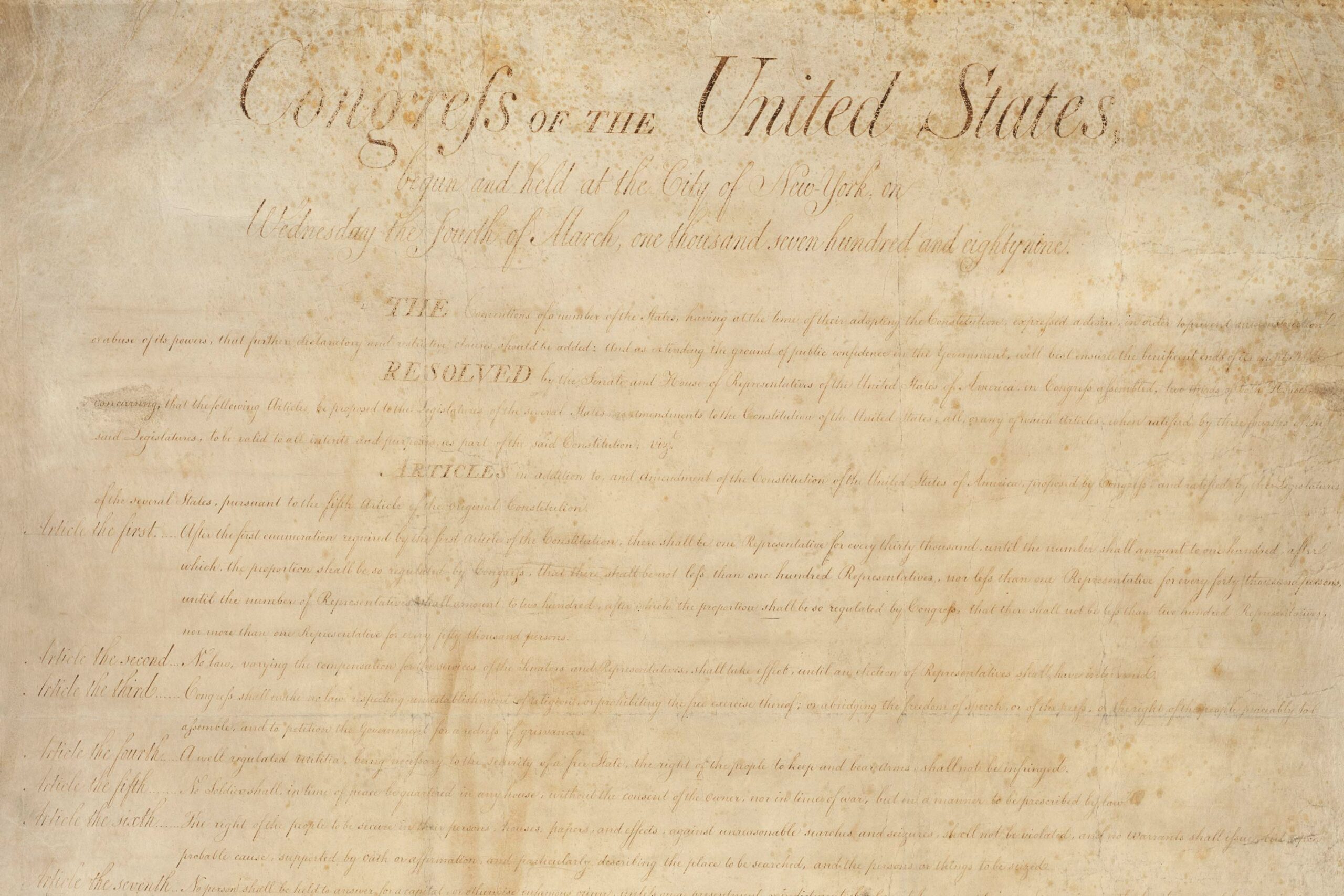Dimension V: The Conference Committee

COMMENTARY
The House appointed Madison, Sherman, and Vining to the Conference Committee. The Senate appointed Ellsworth, Carroll, and Patterson to the Conference Committee. So four of the six members of the Conference Committee were Framers in Philadelphia. The House agreed to the reduction of the number of amendments by the Senate from 17 to 12 in exchange for last-minute concessions on the religion and criminal clauses.
On September 28, the Speaker of the House and the Vice President signed off on the 12 Articles of Amendment to be submitted to the states for ratification.
Very important from Madison’s perspective, Richard Henry Lee and William Grayson—both radical Antifederalists and the only Antifederalists in the Senate—were totally unsuccessful in securing their project. They sent this letter to the Speaker of the Virginia House of Delegates on September 28, 1789 admitting defeat:
We have now the honor of enclosing the propositions of Amendments to the Constitution of the United States that has been finally agreed upon by Congress. We can assure you Sir that nothing on our part has been omitted to procure the success of those Radical Amendments proposed by the Convention and approved by the Legislature of our Country, which as our Constituent, we shall always deem it our duty with respect and reverence to obey. The Journal of the Senate herewith transmitted will at once show how exact and how unfortunate we have been in this business. It is impossible for us not to see the necessary tendency to consolidate Empire in the natural operation of the Constitution if not further Amended than now proposed.
Madison was also less than completely successful in having his proposals adopted. Few members felt the same urgency that Madison did that friendly alterations must be sent to the states by the end of the First Session. They did not end up located where he wanted them to be. Their number was reduced from 39 to 26 and several clauses, the religion clauses in particular, underwent close scrutiny and major alteration, and House Amendment XIV was rejected. So the appellation “Father of the Bill of Rights” ought to be cautiously used. Yet it is certainly true that Madison’s persistence was critical to 12 Amendments being sent to the States for adoption by the end of the first session and, not coincidentally, for the subsequent adoption of the original Constitution by North Carolina and Rhode Island.
In conclusion, it is worthwhile to reflect on James Madison’s letter to Richard Peters on August 19, 1789 telling him why this “nauseous project of amendments” was necessary and proper. This letter organized around seven themes is a model of principled leadership at its best; it joins that which is necessary with that which is proper. A bill of rights, says Madison, is
- In some degree rational in every Government, since in every Government power may oppress, and declarations on paper, though not an effectual restraint, are not without some influence.
- In many States the Constitution was adopted under a tacit compact in favor of some subsequent provisions on this head. In Virginia, it would have been certainly rejected, had no assurances been given by its advocates that such provisions would be pursued. As an honest man I feel my self bound by this consideration.
- If the Candidates in Virginia for the House of Representatives had not taken this conciliary ground at the election, that State would have been represented almost wholly by disaffected characters, instead of the federal representatives now in Congress.
- If amendments had not been proposed from the federal side of the House, the proposition would have come within three days, from the adverse side. It is certainly best that they should appear to be the free gift of the friends of the Constitution rather than to be extorted by the address & weight of its enemies.
- It will kill the opposition everywhere, and by putting an end to the disaffection to the Government itself, enable the administration to venture on measures not otherwise safe. Those who hate the Government will always join the party disaffected to measures of the administration, and such a party will be created by every important measure.
- If no amendments be proposed the language of antifederal leaders to the people will be, we advised you not to adopt the Constitution without previous amendments, you listened to those who told you that subsequent securities for your rights would be most easily obtained. We urged you to insist on a Convention as the only effectual mode of obtaining these. You yielded to the assurances of those who told you that a Convention was unnecessary, that Congress would be the proper channel for getting what was wanted, &c. &c. Here are fine texts for popular declaimers who wish to revive the antifederal cause, and at the fall session of the Legislatures to blow the Trumpet for a second Convention. In Virginia, a majority of the Legislature last elected, is bitterly opposed to the government and will be joined, if no amendments be proposed, by great numbers of the other side who will complain of being deceived.
- Some amendments are necessary for N. Carolina. I am so informed by the best authorities in that State.